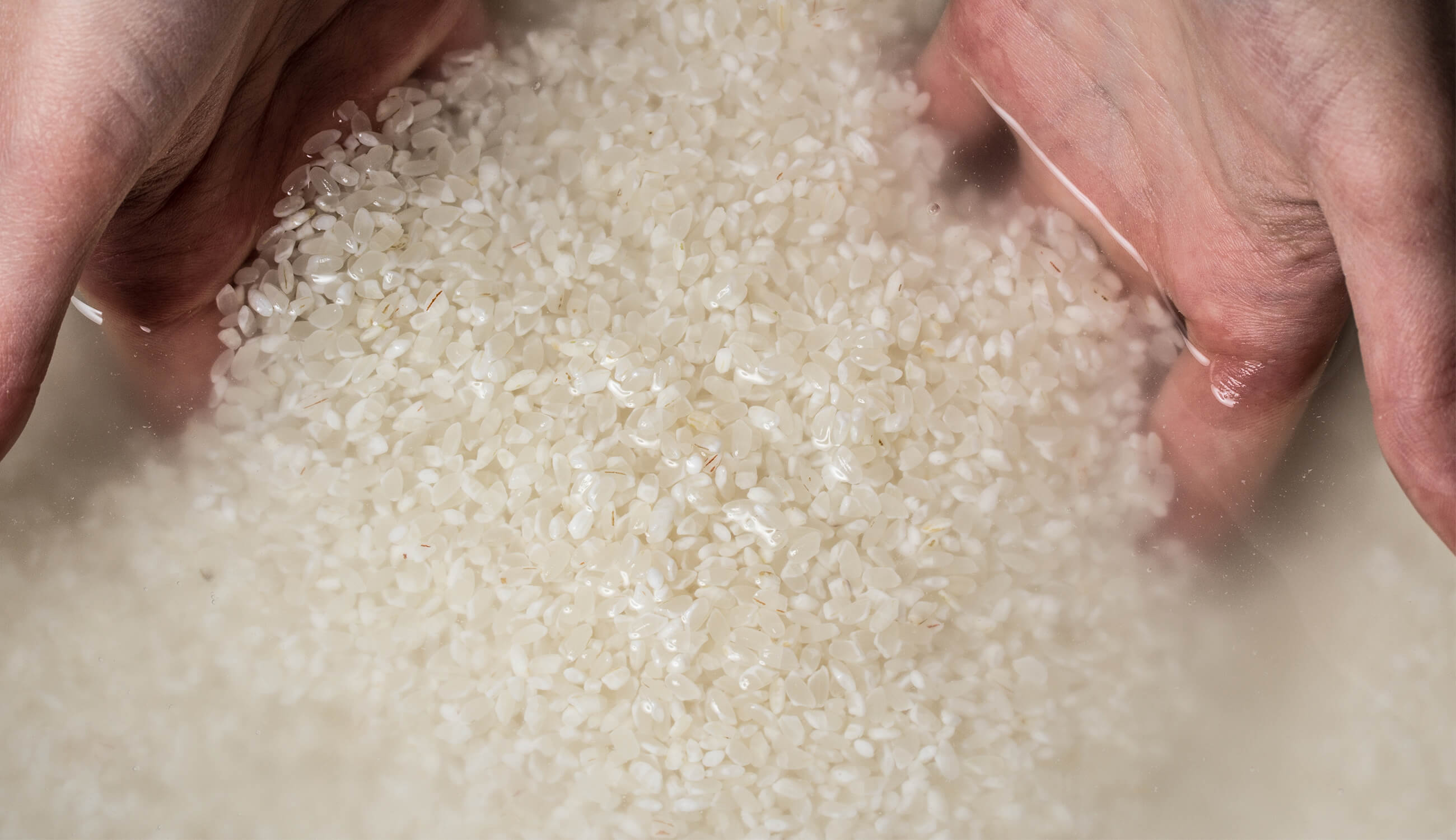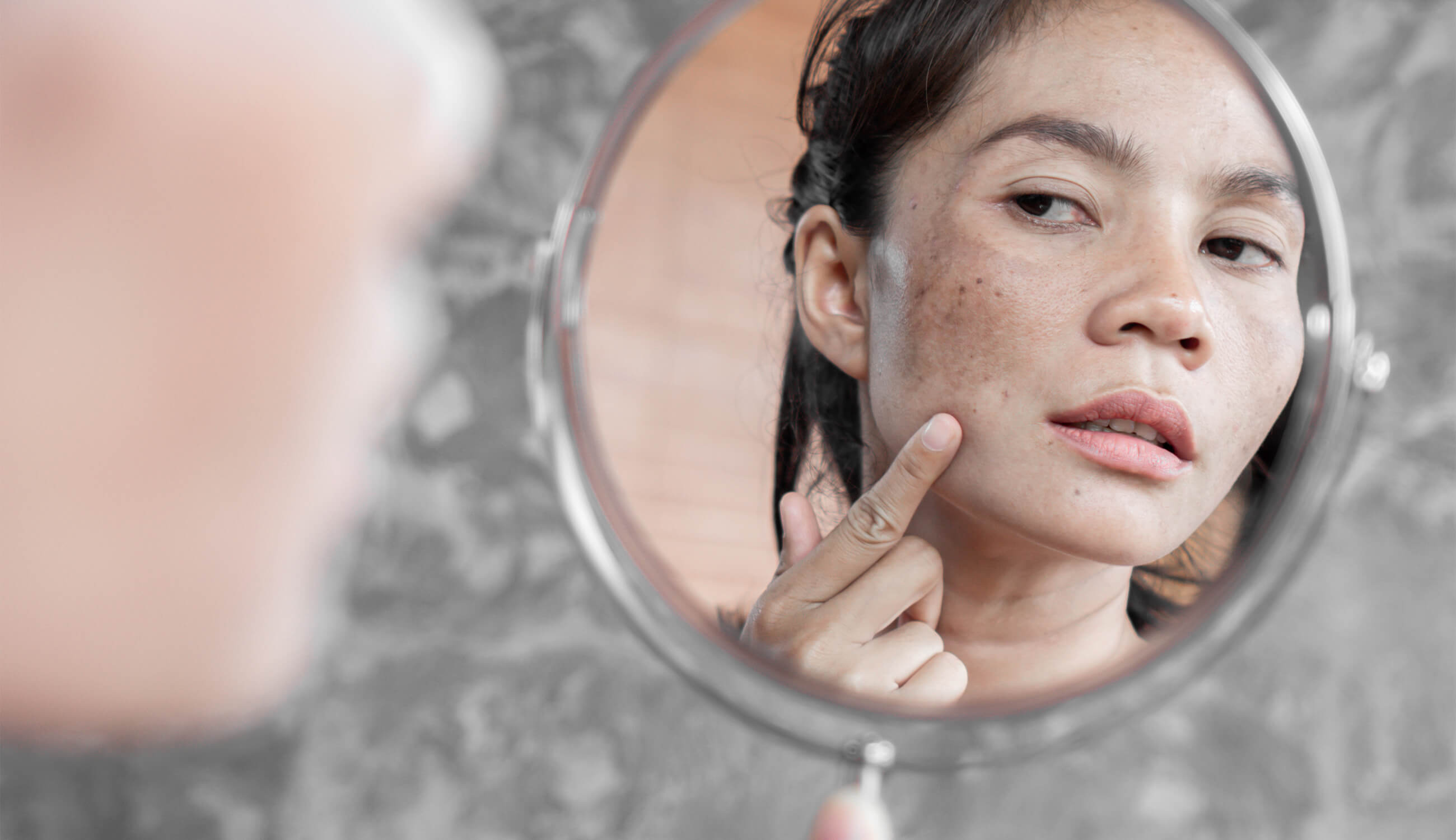As a skincare brand dedicated to plant-based beauty, we prize our hydrating botanical waters. From soothing rose water to skin-quenching aloe vera juice, we’re dedicated to doing more than just ‘water’.
Perhaps the top jewel in our super-water crown is rice water: the starchy water left over from soaking rice. Although not as glamorous as its floral water competition, rice water has been valued for its beautifying properties for centuries. Today it dominates K-beauty, J-beauty and beyond as a popular ingredient in brightening skin care products.
If you’re not yet a convert, you might still be wondering: could something as simple as rice really deliver big results for your skin?
4 key nutrients in rice water for skin
Using rice water on the skin can be a great way to encourage UV protection while also softening and brightening the skin. Actually, a 2013 study proved that rice water has the ability to reduce UV damage.
Rice water can even have regenerative properties for skin, especially skin that has been exposed to harsh weather conditions or hard work. These properties are often attributed to rice’s centuries-old reputation for preserving the hands of Japanese women, who worked long days in the rice fields.
It’s helpful to understand that while rice water may only be one ingredient, it’s made up of a plethora of beneficial nutrients. Thanks to its abundance of vitamins, amino acids and minerals, rice water is known to soothe and invigorate the skin while providing relief to those with skin sensitivities.

Let’s take a look at just four of the many nutrients found in rice water for skin!
#1: Kojic Acid
One of the most notable ingredients in rice water is kojic acid: known for its skin lightening abilities, anti-fungal properties and anti-bacterial functions.
The most popular function of Kojic acid in rice water for the skin has to do with its influence on melanin production. Melanin is the natural pigment that gives the skin its spectrum of unique and beautiful shades. It is also one of the main components of scar tissue and dark spots.
Kojic acid can lighten skin and help fade scar tissue by reducing the production of tyrosine, an amino acid necessary to support melanin production. In addition, kojic acid antifungal and antibacterial properties can help prevent acne-causing bacteria.
The science behind kojic acid’s work as a whitening agent involves its effect on melanin production. Melanin is a natural pigment in the body that gives color to eyes, hair and skin. An amino acid called tyrosine is essential to support melanin production.
Kojic acid works by blocking the formation of tyrosine, which then blocks the production of melanin. Reduced melanin production can have a bleaching effect on the skin.
#2: Ferulic Acid
Rice water, like many herbal ingredients, is packed with antioxidants for your skin. One such antioxidant is ferulic acid. it is perfectly suited to fight against harmful free radicals that can damage our skin, making it ideal for anti-aging.
Ferulic acid is also a fantastic antioxidant that can be seen working alongside other antioxidants such as vitamins C and E. Although they provide strong defense against free radicals, these vitamins also have a reputation for unstable shelf life. Ferulic acid, however, can help keep these antioxidants stable. This 2005 study also suggests that the photoprotective properties of ferulic acid are doubled when combined with vitamins C and E.
#3: Vitamin E
Vitamin E is a powerful, fat-soluble antioxidant known for its ability to reduce inflammation and helps support skin and immune health while fighting free radicals.
The vitamin E content found in rice water for skin and hair care can also help alleviate UV damage, which is mainly caused by overexposure to the sun. According Oregon State Universityvitamin E provides its unique sun protection by absorbing UV rays, giving it shields against exposure to the environment.
#4: Allantoin
Allantoin is a power-generating compound found in a variety of plants known for their soothing properties, such as chamomile and comfrey.
Known for its versatility, allantoin has the ability to hydrate the skin by hydrating and discouraging dryness. It is also able to soothe the skin while encouraging radiance. Allantoin can also act as a powerful anti-aging ingredient encourages collagen production and stimulates fibroblasts. In short, this means it can promote more supple, firm skin while reducing the appearance of lines and wrinkles.

Using rice water in your skin care routine
Rice water is easy to incorporate into your skin or hair care regimen – it can even be done with simple DIY recipes.
However, to enjoy a higher concentration of rice’s rich nutritional profile, a professionally formulated product will provide more powerful results.
Our Fermented Rice Water Serum is designed to encourage a healthy glow, nourish the skin and help it recover from sun exposure. Although it contains protective antioxidants, this day serum is not the same with a proper SPF – which is your best bet for preventing UV damage.
To be really specific, this serum is made with “fermented” rice water: also known as sake. Sake can take your skincare routine even further by fading blemishes, reducing sun spots and reducing the signs of aging. We’ve also featured this allstar ingredient in our Brightening Serum and Dark Spot Remover!
Get the most out of Rice Water
Rice serums tend to have formulas that are concentrated and lightweight, so they should be applied to skin after cleansing and toning. They should also be applied before moisturizers and facial oils.
Fermented Rice Water Serum can be applied day and night and is suitable for all skin types. To apply the rice water serum, pump a dime-sized amount onto clean hands. Gently tap and press the serum into wet skin and allow 90 seconds to absorb.
Frequently Asked Questions about Rice Water
What is rice water and how does it help brighten skin?
Rice water is the starchy water that remains after cooking or soaking the rice. It is rich in vitamins, minerals and amino acids that are essential for skin health. Rice water contains antioxidants and compounds like ferulic acid and allantoin, which can lighten skin, reduce pigmentation, and even out skin tone.
How do you make rice water for skin care?
To make rice water, rinse half a cup of uncooked rice to remove impurities. Soak the rice in two cups of water for 30 minutes to an hour. Drain the rice, keeping the water. Alternatively, cook the rice in the excess water and drain the excess water to use. The resulting rice water can be stored in the refrigerator for up to a week.
How often should I use rice water on my face for effective results?
For best results, use rice water on your face 2-3 times a week. Soak a cotton pad in rice water and gently apply to your face as a toner. You can also use it as a face wash after washing your face. Continued use over time can result in noticeably brighter and smoother skin.
Can rice water be used on all skin types?
Yes, rice water is generally safe for all skin types, including sensitive skin. Its natural composition is gentle on the skin, making it suitable for people with dry, oily or combination skin. However, as with any new skin care regimen, it’s a good idea to do a patch first to rule out any allergic reactions.
Are there any side effects of using rice water on the skin?
Rice is usually well tolerated by most skin types, but in rare cases, it can cause irritation, especially if you are allergic to rice or have extremely sensitive skin. If you experience redness, itching or irritation, discontinue use immediately. It is also important to use fresh rice water and not use it past its shelf life to avoid bacterial growth.
